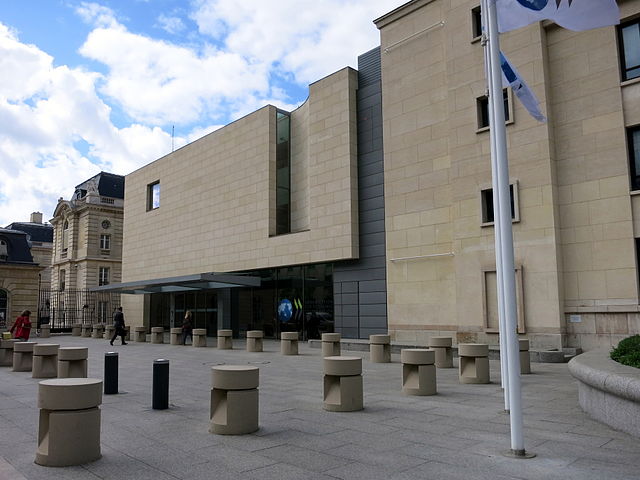Canada News
Duclos hosts OECD meeting to swap tips on keeping social anxiety at bay

The main entrance to the OECD Conference Centre in Paris (Photo By Nick-D, CC BY-SA 3.0)
OTTAWA — When Jean-Yves Duclos hosts other social development ministers and social scientists from 35 countries this coming week, he hopes to swap tips on keeping social anxiety at bay.
Member countries of the Organization for Economic Co-operation and Development have, for the first time, decided to hold their marquis social policy ministerial meetings outside of Paris, choosing Montreal for their brainstorming session.
Over the course of two days, they will hash out policy solutions to some of the biggest challenges facing developed countries in recent years: disruptive technology, income distribution, affordable housing, child care, poverty — and above all, widespread frustration with ruling classes.
Duclos, the federal minister for families, children and social development, says he plans to use the stage to signal that Canada “wants to do things differently” — orienting its social policy to keep in check the fear and resentment that he believes lead to destructive populist sentiment.
Duclos will deliver a speech Monday morning and offer remarks on several occasions at the meeting called Social Policy for Shared Prosperity: Embracing the Future, where representatives from the OECD’s 35 countries will exchange their views and ideas around social protection.
Twenty countries signed the organization’s convention in 1960 and the OECD came into force one year later.
Since then, an additional 15 countries have joined.
“When citizens and middle class Canadians in particular feel threatened, they may choose to build a wall as opposed to building bridges,” said Duclos in an interview.
“I’m interested in hearing whether those signals are heard in other OECD countries and we’re looking forward to signalling that we want to do things differently,” said Duclos.
“Building bridges as oppose to building walls, which is a benefit to all.”
Duclos’ comments come less than a month before the G7 summit in the Charlevoix region of Quebec, where Canadian politicians will aim to strike the fine balance between finding common ground with U.S. President Donald Trump while reaffirming to Canadians that populism and protectionism are not part of Canada’s approach.
Duclos said he looks forward to listening to other members of the organization because most of the member countries share similar challenges including: “exclusion, fear and uncertainty.”
Such fear and uncertainty lead to lower growth because when people do not feel confident about their future, they don’t invest, the minister said. At the same time, that fear also leads to politically adverse situations around the world, he added.
Duclos said he plans to highlight his government’s efforts to improve income security and work security, especially the Liberals’ move to hike taxes on the rich while cutting them for the middle class.
But despite the receptive global audience, details around the government’s long-promised national poverty reduction strategy will not be raised next week. Duclos said he will reference the fact that work is ongoing, with plans to unveil the strategy by the end of 2018.
“We are taking a bit longer?we would have liked that to be issued by June 2018 but we’re taking a bit longer and taking full advantage of the input of our advisory poverty committee,” Duclos said.





















